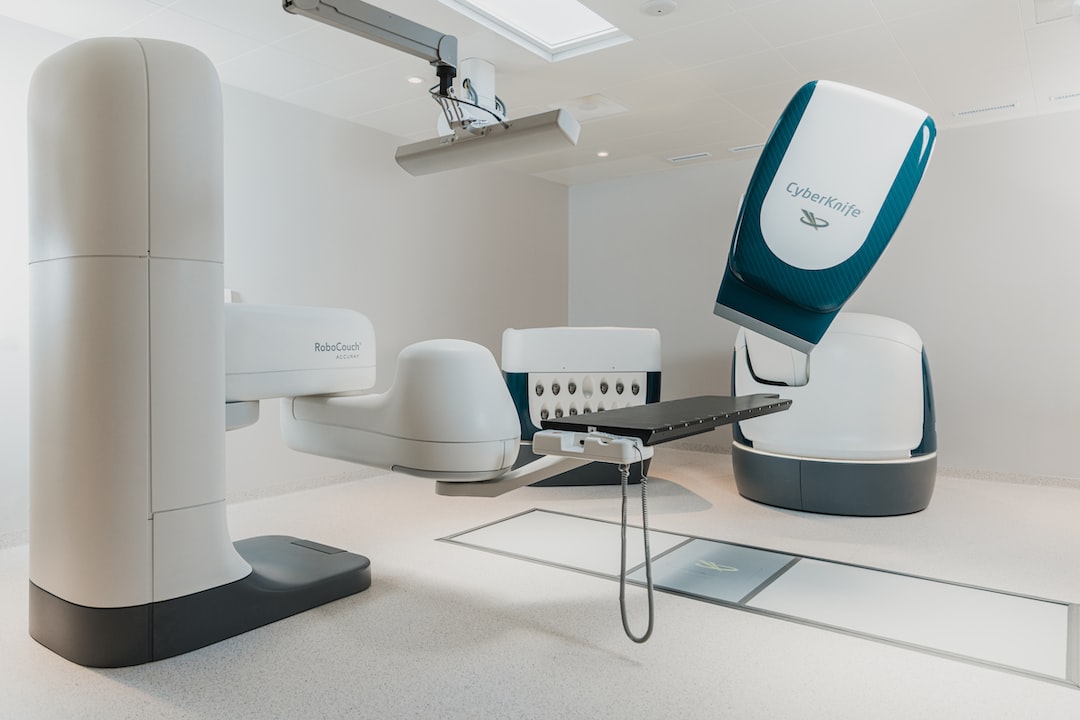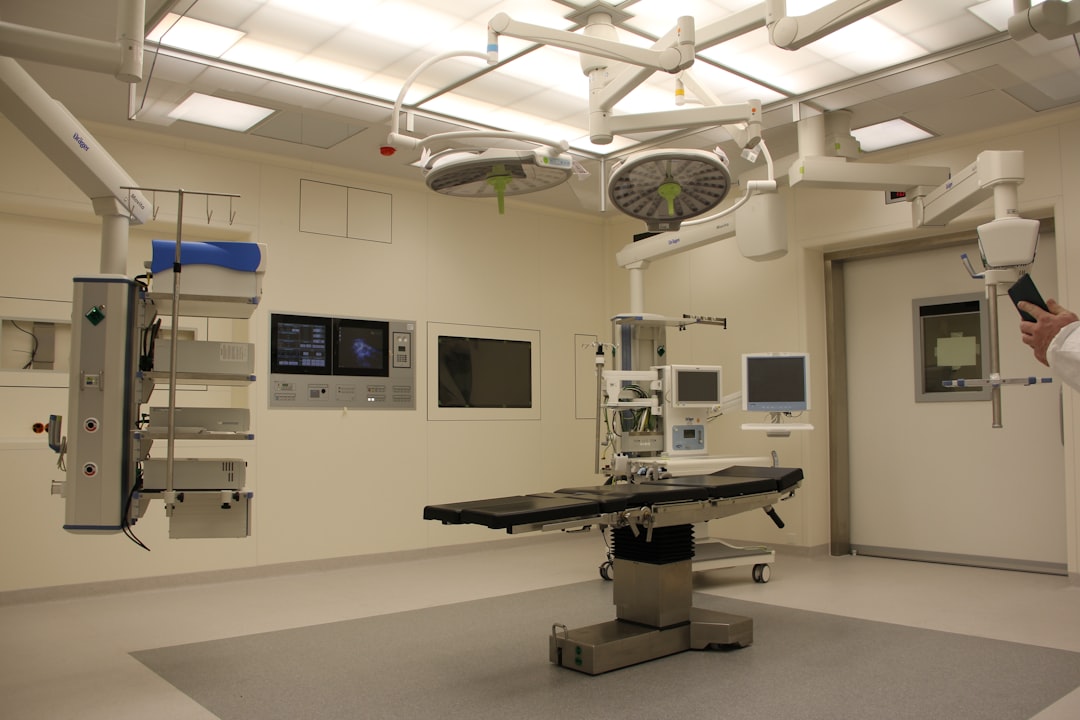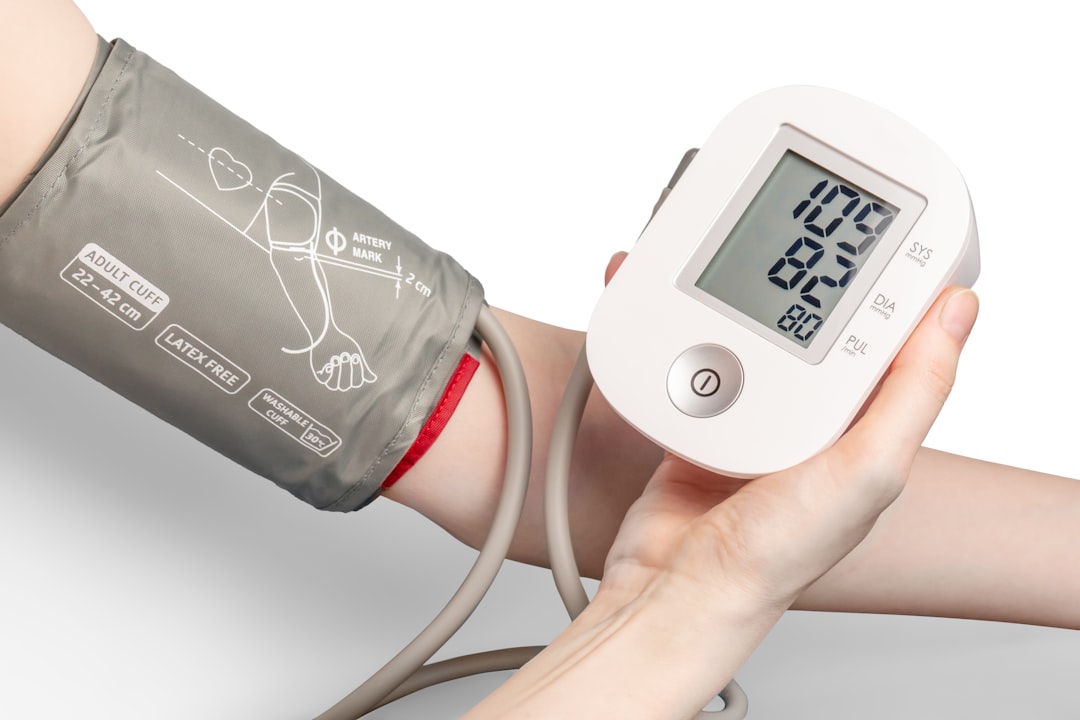Cryptocurrency is a digital or virtual currency that uses cryptography to secure and verify transactions as well as to control the creation of new units. Unlike traditional currency, cryptocurrency operates independently of a central bank and can be exchanged directly between individuals. Examples of popular cryptocurrencies include Bitcoin, Ethereum, and Litecoin.
So why is this relevant in healthcare? One reason is that cryptocurrency has the potential to streamline payment systems within the industry. Currently, healthcare payment processes can involve multiple intermediaries and lengthy wait times. Cryptocurrency could provide a faster and more efficient payment option that could benefit both patients and providers.
In addition to payment systems, cryptocurrency and the technology behind it, blockchain, could revolutionize other aspects of healthcare. For example, blockchain technology could be used to secure medical records, preventing data breaches and protecting patient privacy. It could also be used to facilitate medical crowdfunding for research and development of new treatments.
Overall, the intersection of cryptocurrency and healthcare presents a new and exciting frontier that holds potential for improving the industry. However, it also presents unique challenges that must be addressed in order to fully realize its benefits. This includes regulatory issues and ensuring the security and accuracy of transactions.
Paying for healthcare with cryptocurrency: How it works and who’s doing it
Cryptocurrency has been making waves in various industries, and healthcare is no exception. As the value of cryptocurrencies like Bitcoin and Ethereum continue to surge, more people are becoming interested in using them as alternative payment methods for their healthcare needs.
But how exactly does paying for healthcare with cryptocurrency work? It’s actually simpler than you might think. Just like with traditional payment methods, healthcare providers who accept cryptocurrency as payment provide their patients with a wallet address. Patients can then send their payment to the wallet address, which the healthcare provider can then convert into their preferred currency.
One example of a healthcare provider accepting cryptocurrency is the American Cancer Society. In 2018, they teamed up with the cryptocurrency mining company, MiningForGood, to create a website that allows users to donate cryptocurrency to support cancer research. The funds are then converted into traditional currency and given to the American Cancer Society.
Another example is the Massachusetts-based healthcare provider, The Chiropractic Office of Dr. Adam Zuckerman. In addition to accepting traditional payment methods like cash and credit cards, they also allow their patients to pay with Bitcoin.
But it’s not just healthcare providers who are accepting cryptocurrency. Some insurance companies are also getting in on the action. In 2017, the insurer Oscar Health announced that they would begin accepting payments in Bitcoin for certain plans.
While the use of cryptocurrency in healthcare is still relatively small, it’s clear that there is an interest in its potential as an alternative payment method. However, there are also challenges to overcome. One such challenge is the volatility of cryptocurrencies, which can make it difficult for healthcare providers to accurately determine the price of their services.
Overall, the use of cryptocurrency in healthcare is still a developing trend. But as more providers and insurers begin to accept it as payment, it’s clear that it has the potential to revolutionize the way we pay for healthcare services.
In 2018, they teamed up with the cryptocurrency mining company, MiningForGood, to create a website that allows users to donate cryptocurrency to support cancer research.
Secure Medical Recordkeeping Through Blockchain Technology: Preventing Data Breaches and Protecting Patient Privacy
In the healthcare industry, securing sensitive patient information is of utmost importance. With the increasing frequency of data breaches, it has become a top priority to find a more reliable and secure way to handle medical records. This is where blockchain technology comes in.
Blockchain technology is a decentralized system that ensures data is encrypted, tamper-proof and secure from hackers. It uses distributed ledgers to keep a permanent and immutable record of transactions, making it an ideal solution for secure medical recordkeeping.
With blockchain technology, healthcare organizations are able to create a secure and decentralized database that allows the storage and sharing of medical records with complete transparency and privacy. Only authorized parties have access to the data, and every entry on the blockchain is verified through a consensus mechanism, making it virtually impossible to tamper with the records.
This ensures that healthcare providers have access to real-time and accurate patient records, regardless of the location or network involved. Patients can also have complete control over their own medical records, including the ability to share them with other healthcare providers when needed.
One example of blockchain technology being used for secure medical record keeping is MedRec, an initiative launched by researchers at MIT. MedRec uses blockchain technology to create a scalable, GDPR-compliant, and secure system for managing medical records. It puts patients in control of their own data, allowing them to grant access to healthcare providers as needed.
There are also companies such as Guardtime, Factom, and Healthereum that have developed blockchain-based solutions for healthcare recordkeeping, with the aim of improving patient privacy and security.
The use of blockchain technology for medical recordkeeping has the potential to greatly reduce the risk of data breaches, identity theft, and fraud. It also enhances the overall efficiency of healthcare systems by reducing duplication of tests and treatments, and improving coordination between different providers.
In summary, blockchain technology provides a secure and efficient solution for medical recordkeeping in the healthcare industry. It is a groundbreaking technology that is transforming the way we store, share, and access medical records, with the potential to improve patient privacy and reduce costs for the healthcare industry in the long term.
In summary, blockchain technology provides a secure and efficient solution for medical recordkeeping in the healthcare industry.
Donating to Medical Research Through Cryptocurrency: The Rise of Medical Crowdfunding
Cryptocurrency has not only revolutionized the way we think about money, but it has also paved the way for charitable giving like never before. With the rise of medical crowdfunding through cryptocurrency, individuals and organizations can now support important medical research efforts and initiatives around the world.
Medical crowdfunding is not a new concept, but it has traditionally been limited to traditional fundraising methods such as email blasts, phone calls, and in-person events. However, with the increasing popularity of cryptocurrency, medical crowdfunding has now expanded into the digital realm as well. With just a few clicks, anyone can donate to a medical research project or a patient’s medical bills using their preferred cryptocurrency.
What makes cryptocurrency an attractive option for medical crowdfunding is the speed and transparency of transactions. Since cryptocurrency works without the need for a bank or intermediary, transactions can be completed quickly in a matter of minutes. Additionally, every transaction is recorded on a public blockchain, meaning that anyone can verify that the funds were received and how they were used by the intended recipient.
Another benefit of medical crowdfunding through cryptocurrency is that it allows for donations from all over the world. Traditional fundraising methods are generally limited to local communities or a particular region, but with cryptocurrency, anyone with an internet connection can make a donation. This opens up a whole new world of potential donors and supporters in the healthcare industry.
Medical crowdfunding through cryptocurrency has already made a significant impact in the healthcare industry. For example, the Binance Charity Foundation has made it their mission to support medical research initiatives around the world. They have set up a cryptocurrency wallet specifically for charitable donations, which has raised millions of dollars for various initiatives in just a few years.
However, there are also challenges to overcome when it comes to medical crowdfunding through cryptocurrency. The price volatility of various cryptocurrencies means that donations received may fluctuate in value, making it difficult for medical organizations to plan and budget accordingly. Additionally, since every transaction is recorded on a public blockchain, concerns about privacy and security must be taken into account.
Overall, medical crowdfunding through cryptocurrency offers a unique and powerful way to support medical research initiatives around the globe. As the popularity of cryptocurrency continues to grow, so too will its impact on the healthcare industry. It is up to healthcare organizations and donors to stay informed and engaged in this developing field to ensure that medical crowdfunding through cryptocurrency can be used effectively and responsibly.
Another benefit of medical crowdfunding through cryptocurrency is that it allows for donations from all over the world.
Encouraging Healthy Behavior with Cryptocurrency: How Blockchain Technology is being used to Incentivize Wellness Programs
As industries and organizations continue to explore the potential of blockchain technology, the healthcare sector is also finding creative ways to integrate this technology into their operations. One interesting application of blockchain in healthcare is its ability to incentivize healthy behavior through the use of cryptocurrency.
Traditionally, wellness programs have encouraged healthy behavior through various incentives such as gym memberships or cash rewards. However, blockchain technology provides an innovative way to reward individuals for their healthy habits. This is done through the use of smart contracts that automatically dispense cryptocurrency rewards to individuals that meet certain health criteria.
These rewards, in turn, can be used to purchase goods and services from vendors that accept cryptocurrency, including healthcare services. In fact, some healthcare providers have begun accepting cryptocurrency as a form of payment for their services, making it even easier for individuals to spend their rewards on maintaining their health.
Moreover, blockchain-based wellness programs can also provide greater transparency when it comes to tracking and rewarding healthy behavior. For example, since blockchain is a decentralized ledger technology that creates immutable records, it is nearly impossible to manipulate health data or the amount of cryptocurrency rewards received by an individual.
This creates a more secure and trustworthy system that can help incentivize individuals to maintain healthy habits over the long term. Additionally, since blockchain data is secure and private, individuals have greater control over their personal health data and who can access it.
In conclusion, blockchain technology has the potential to revolutionize the way we incentivize healthy behavior and wellness in the healthcare sector. With the use of smart contracts and cryptocurrency rewards, individuals can be incentivized to adopt healthier habits over the long term. Moreover, the added security and privacy provided by blockchain technology can help protect patient data and allow individuals to have greater control over their personal health information. However, as with any new technology, there are still challenges to be addressed and potential risks to consider. It is important to stay informed and engaged as the healthcare sector continues to explore the potential of blockchain and cryptocurrency.
However, blockchain technology provides an innovative way to reward individuals for their healthy habits.
Telemedicine and Cryptocurrency: Improving Access to Care in Remote Areas
As we’ve discussed earlier, cryptocurrency and blockchain technology have several applications in healthcare. One area where they could be particularly transformative is in telemedicine. Telemedicine refers to the delivery of healthcare services through digital platforms like video conferencing, remote monitoring, and instant messaging.
Traditionally, telemedicine has been used to provide healthcare services to people in remote or underserved areas. Patients can consult with healthcare providers from the comfort of their homes, and doctors can remotely diagnose and treat patients living in areas where there may be a shortage of medical professionals.
While telemedicine has been around for some time now, the adoption of cryptocurrency and blockchain technology could unlock a whole new realm of possibilities for the industry. One of the primary benefits of using cryptocurrency for telemedicine is that it allows for secure, peer-to-peer transactions without the need for intermediaries or banks.
This is particularly relevant for people living in remote areas with limited access to financial institutions or traditional payment methods. With cryptocurrency, patients can easily pay for medical services from anywhere in the world, as long as they have an internet connection.
Furthermore, using cryptocurrency for telemedicine could also reduce transaction costs, which can be significant in traditional payment methods. Since the blockchain is distributed and decentralized, there are no intermediaries to charge fees, making transactions faster and less expensive.
In addition, blockchain technology could improve the security and privacy of telemedicine transactions. By using distributed ledgers to record transactions, patient data can be securely stored and shared among healthcare providers without the risk of a data breach.
There are already several healthcare startups that are using cryptocurrency and blockchain for telemedicine services. One such company is MedCredits, which has developed a decentralized platform that connects patients with healthcare providers around the world. Patients can pay for consultations through the platform’s native cryptocurrency, MEDX.
Another company, Docademic, has created a telemedicine app that allows patients to consult with doctors in real-time, regardless of their location. Payment for services is made through the company’s cryptocurrency, MTC, which can be bought and sold on several cryptocurrency exchanges.
As the use of telemedicine continues to grow, the adoption of cryptocurrency and blockchain technology is likely to become more widespread. While there are still challenges to overcome, such as regulatory hurdles and technical barriers, the potential benefits of using these technologies for telemedicine are clear.
By improving access to care in remote areas and reducing transaction costs, cryptocurrency and blockchain technology could revolutionize the way healthcare is delivered around the world. As healthcare providers and patients become more familiar with these technologies, we can expect to see more innovative applications in the coming years.
Patients can consult with healthcare providers from the comfort of their homes, and doctors can remotely diagnose and treat patients living in areas where there may be a shortage of medical professionals.
Smart Contracts and Healthcare: How Autonomous Contracts Could Revolutionize the Industry
Smart contracts are self-executing agreements that are programmed to automatically trigger actions when certain conditions are met. They operate on a blockchain network, which offers a decentralized and secure platform for executing these contracts. The potential for smart contracts in healthcare is enormous, as they could transform the way healthcare providers deliver care and manage patients.
One key advantage of smart contracts is their ability to automate insurance claims and payment processing. Insurance claims can be a lengthy and complex process, which involves multiple parties and a lot of paperwork. Smart contracts can streamline this process by automatically verifying claims and releasing payment once the required conditions are met. This can reduce the administrative burden on healthcare providers and ensure that patients receive timely and accurate payments.
Another area where smart contracts could have a significant impact is in clinical trials. Clinical trials are critical to the development of new drugs and therapies, but they are often hindered by a lack of transparency and trust among the various parties involved. Smart contracts can help address this issue by automating many of the processes involved in running a clinical trial, including patient registration, consent, data collection, and payment processing. This can improve the efficiency and speed of the clinical trial process, while also ensuring that data is secure and transparent.
Smart contracts can also be used to manage the supply chain for pharmaceuticals and medical devices. By using blockchain technology to track the movement of drugs and devices from manufacturers to patients, smart contracts can ensure that products are authentic, safe, and effective. This can be particularly important in the case of counterfeit drugs, which can pose a significant risk to patients.
There are also opportunities for smart contracts to improve the management of electronic health records (EHRs). EHRs contain sensitive patient information, which needs to be protected from unauthorized access or tampering. Smart contracts can enhance the security of EHRs by providing an immutable audit trail of all transactions and activities within the system. This can help reduce the risk of data breaches and ensure patient privacy.
While the potential for smart contracts in healthcare is significant, there are also challenges that need to be addressed. One of the key challenges is the lack of standardization and interoperability among different blockchain networks. This can make it difficult to share data and execute contracts across different systems. Another challenge is the need for regulatory clarity and guidance, particularly around issues related to patient privacy and data protection.
Overall, smart contracts could revolutionize the healthcare industry by improving the efficiency, security, and transparency of healthcare transactions and processes. As the use of blockchain technology continues to evolve, we can expect to see more innovative applications of smart contracts in healthcare. It is important for healthcare providers and stakeholders to stay informed and engaged in the development of these technologies to ensure that they are used effectively and responsibly.





